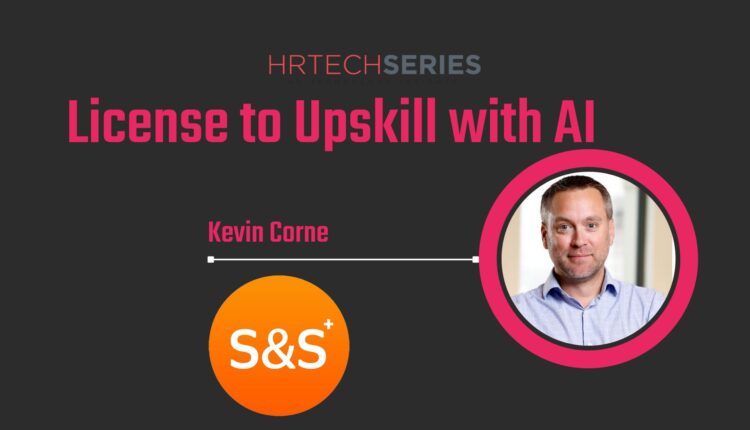Advertising and business mogul Sir Martin Sorrell believes that the rapid advancement of artificial intelligence (AI) will soon render human call centers obsolete. The founder of WPP and S4 Capital is not alone in such concerns around AI. A recent statement on the Centre for AI Safety – which has been backed by OpenAI’s Sam Altman and Google’s Demis Hassabis – says that “mitigating the risk of extinction from AI should be a global priority alongside other societal-scale risks such as pandemics and nuclear war”.
Where there’s nothing new about emerging technologies shifting the business landscape, there are concerns – and rightly so – about how much power this technology could have as it continues to develop. One thing’s for sure – AI is not going away. Far from it, in fact, it’s proving a significant technological development and becoming more intricately intertwined with the future of work.
Top AI News: Teleperformance Implements AI Solutions Leveraging ServiceNow Platform
This has inevitably led to fears about jobs becoming obsolete – but in actual fact it’s creating some exciting new ones. AI has the potential to upskill all of us and how we live our lives today – Elon Musk has spent years with Tesla capturing data to give us an AI enabled automated driving experience. Like Tesla so many more companies are investing in AI capabilities to enhance their products and services too, after all, it is becoming a necessary support to human decision making, enabling much-needed change and transformation.
AI fear versus FOMO
I’ve noticed there are generally two schools of thought regarding AI’s potential in the business world. Some are worried they’re going to miss the innovation boat and lose ground on competitors if they don’t follow the trend and adopt the technology. These are part of the ‘fear of missing out’ (FOMO) camp. Then there are those that fear it altogether. They believe their current set-up is either already capable of taking them forward or they harbor doubts around AI’s sustained positive impact on their organizations.
No business is the same, but both of these views can be a detriment to the future of work. We shouldn’t be adopting innovative technologies simply to keep up appearances with competitors. Nor should we ignore it altogether because of the uncertainty it may bring. Leaders need to understand AI’s implications as well as its opportunities, and be considerate in the way it is finally adopted across the business and fully understand how it will impact its people.
According to our new business book on change management, The Future Business Formula, the attitudes, behaviors and mentality that have kept organizations alive no longer work.
The pace of change and disruption is accelerating, and businesses need a chance to adapt, evolve and ultimately thrive in a world that is becoming more complex. AI is going to be a part of this but businesses need guidance on how to adopt it sensibly.
AI in the future of work
Embracing AI in business strategy is crucial for staying relevant and competitive in a fast-paced landscape. Internally, AI can streamline processes, enable data-driven decisions, and enhance employee productivity – all while decreasing the chance for human error and increasing accuracy.
Its impact also extends to external strategy. Leveraging machine learning algorithms can be a stepping stone to consistently delivering personalized experiences. Moreover, it can provide predictive analytics; for example, forecasting upcoming sales trends or disruptions to ensure you seamlessly navigate product shortages and supply chain issues.
AI doesn’t just operate in the background; it can be deployed as a tangible product or service, working with human output to augment their capabilities. This is the case for Large Language Models (LLMs) such as OpenAI’s ChatGPT, which can augment human capabilities. For example, using technology to write basic marketing outreach materials – as well as automating consumer queries and needs – enhancing the overall customer experience (CX).
The power of the human touch
AI’s status as a driver of efficiency isn’t in doubt. But leaders can’t look solely through a business lens; accounting for the human factor and where employees best fit into the equation shouldn’t be dismissed.
With this in mind, it is crucial to cultivate a workplace culture where everyone feels they can thrive, alongside technology. This means fostering a collaborative mind-set – proving that the technology can empower teams to be the best they can be, from being an enabler to unlock creativity through to the tech’s problem-solving capabilities and supporting innovation.
This should also go hand-in-hand with a growth mindset. AI is there to support human output and will help your business adapt to changes, differentiation can also be found in the way the technology is used and implemented. As the technology advances, it has the potential to grow with your business – and employees – and align with core values to fully embrace its benefits.
Sorrell’s warning about AI isn’t an isolated one. Sources close to the technology – and who have a vested interest in its success – are concerned about its role. And as AI proliferates, greater regulation will be needed to effectively manage its potential risks such as security vulnerabilities and ethical concerns.
However, the reality is that AI is, and will continue to be, a powerful tool in business. Leaders should have courage when seizing the opportunities it provides – whilst also staying true to their businesses core values and in supporting employees. This should also be paired with striking the right balance between innovation and accountability.

